#Appalachian literature
Explore tagged Tumblr posts
Text
I know this is a shot in the dark but does anyone know anything about Whitebear Whittington??
It's an Appalachian folktale based on East of the Sun and West of the Moon. I read about it in Lee Smith's novel Fair and Tender Ladies, and I'm desssppppeerraatte to find a version or copy that isn't Snowbear Whittington by William Hooks.
#southern literature#literature#Appalachian literature#whitebear whittington#folklore#folktales#help ToT
0 notes
Text
The Talking West Virginia Blues
In folk music a “floating” verse is one that floats around and appears in lots of songs. When you’re singing a tune and you’ve sung all the verses you know but you don’t want to quit yet, you might throw in a floating verse—like this one: Oh, the winds they do whistle, And the waters do moan. I’m a poor boy in trouble. I’m a long way from home. I’m quoting folk tunes from memory here, so I may be…
#2nd Ammendment#Appalachian literature#banjo#fireball#folk tunes#hillbilly#Ohio River#redneck#tall tales#the Klan#UMWA#Wheeling WV#white trash
1 note
·
View note
Text
Appalachia, Mon Amour
[Note: there are more extensive lists out there, but through personal criteria, this is what I came up with.]
Map of Appalachia:

Frank X Walker, born in Danville, Kentucky, coined the term "Affrilachia" to refer to African-Americans in the region and give a name to their experiences. He also co-founded the Affrilachian Poets. He offers educational training on his website.
Here is a list of his books. These include known titles like Love House, Affrilachia, and Black Box.
Lisa Alther, from Kingsport, Tennessee, is a prolific fiction writer whose work often contains lesbian and bisexual characters. Several titles are linked below.
Other Women, Kinflicks, Swan Song.
Harriette Simpson Arnow was born in Wayne County, Kentucky. She worked as a teacher and principal in rural Appalachia for two years. She would go on to write her first novel in 1936, drawing on her experiences in the region. Future works would carry story tones of moving and fraught lives which would strike cords with Appalachian readers.
Hunter's Horn, The Dollmaker, The Weedkiller's Daughter.
Pinckney Benedict is a short-story writer, playwright, and novelist. He was born in Greenbriar County, West Virginia. His work is strongly influenced by his Appalachian background. His first novel, Dogs of God, was published in 1995 and he has gone on to publish three short story collections.
Dogs of God, Town Smokes, Wrecking Yard.
Harry M. Caudill was born in Whitesburg, Kentucky. Caudill was a World War 2 veteran critical of the approaches taken in Appalachian mining. He was also critical of the power wielded by northeastern investors in these mines. In his later years he became a eugenicist, believing William Shockley's theory of dysgenics (the idea that "unintelligent" people weaken a race over time). He published multiple books concerning law and his home area of the Cumberlands Plateau.
Night Comes to the Cumberlands, The Watches of The Night, A Darkness at Dawn.
Wilma Dykeman grew up in Buncombe County, North Carolina. She married her husband, James R. Stokely Jr, two months after meeting him. This occurred shortly after her graduation from Northwestern University. She authored multiple novels and family epics, tracing decisions through time. The Wilma Dykeman Award exists to promote writers discussing connection, Appalachia, and religion. Urban News provides support for writers of color.
The Tall Woman, The Far Family, Return the Innocent Earth.
Denise Giardina was born in Bluefield, West Virginia. She grew up in the Black Wolf coal mining camp located in McDowell County. Her family's survival was heavily dependent on the mine's prosperity. Politically active and frequently writing about Appalachian labor conflicts, she experienced clashes with the superiors of an Episcopalian she attempted to lead in West Virginia over her labor views.
Storming Heaven, The Unquiet Earth.
Homer Hadley Hickam Jr was born in Coalwood, West Virginia. He is a Vietnam War veteran, author, and former NASA engineer. His 1998 memoir Rocket Boys was the basis for the 1999 movie October Sky. He has a diverse body of work. His Coalwood series is about Appalachia and consists of memoirs about his hometown.
Rocket Boys, The Coalwood Way, Sky of Stone.
Silas House was born in Corbin, Kentucky, and grew up in nearby Laurel County. He also spent much of his childhood in Leslie County. He is one of the most prominent voices of LGBTQ+ Appalachians and Southerners in Southern literature.
Clay's Quilt, A Parchment of Leaves, The Coal Tattoo.
Sharryn McCrumb is a Southern writer. Born in Wilmington, North Carolina, she is best known for her Appalachian Ballad series, which weaves folklore in with historical events.
If I Ever Return, Pretty Peggy-O, The Hangman's Beautiful Daughter, She Walks These Hills.
Mary Noailles Murfree was born near Murfreesboro, Tennessee on a cotton plantation. She is considered to be Appalachia's first significant female writer. Her work does reinforce negative stereotypes of the region and the influence of her social standing on her work is notable. She wrote under the pen name Charles Egbert Craddock.
The Windfall, In the Tennessee Mountains, In the Clouds.
Karl Dewey Myers was born in Tucker County, West Virginia. He was physically disabled, never walked, and required a special typewriter to write. He was denied formal education, resulting in him being self-taught. His first poetry collection was The Quick Years, analysis of which exists in literary journals.
The Quick Years. Little is written about his second poetry collection, Cross and Crown, published shortly before his death in 1951.
Breece D'J Pancake was a short-story writer born in Milton, West Virginia. The location is the inspiration for his multiple short stories, published in The Atlantic Monthly and other periodicals during his lifetime. He passed due to suicide at age 26. Chuck Palahniuk claims him as an influence.
Stories of Breece D'J Pancake (collected short stories), Trilobites, Time and Again.
Ann Pancake was born in Richmond, Virginia. Her family has strong roots in West Virginia and Appalachia. She grew up in Summersville, West Virginia. Her family includes filmmaker Chet Pancake and actor Sam Pancake. She is a distant relative of the writer Breece Pancake. Writing stories centering rural poverty and the historical roots of poverty in general. She teaches Appalachian fiction and environmental criticism. She recently resigned from West Virginia University in protest of budget cuts.
Strange as This Weather Has Been, Me and My Daddy Listen to Bob Marley (short stories and novellas), Given Ground.
Carter Sickels grew up in Ohio and, as an adult, moved around to various cities. His work captures a homesickness for the place one grew up while balancing any complicated feelings one may have about the area. An interview on the subject by Megan Kruse can be found here.
The Evening Hour, The Prettiest Star.
Hubert Skidmore was a writer born Webster Springs, West Virginia, his twin brother Hobert Skidmore was also a novelist. He is best known for his social protest novel Hawk's Nest. He died in a house fire in 1946.
A list of his other books can be found here.
Crystal Wilkinson was born in Hamilton, Ohio. She is a member of the Affrilachia collective. With experience in media and public relations, her transition to poet and professor of creative writing was smooth. She is the first Black woman to be Kentucky's Poet Laureate, a position she was appointed to in 2021.
Praisesong for Kitchen Ghosts, Blackberries, Blackberries (poetry collection), The Birds of Opulence.
Jim Webb was born in Jenkins, Kentucky, he was an Appalachian poet, writer, and essayist. He was a founding member of the Southern Appalachian Writers Cooperative. Transcriptions of the interviews with founding members can be found here. He spent three decades managing the radio show, "Ridin' Around Listenin' to the Radio With Wiley Quixote", a literary persona he created of a mountain character critical of strip-mining for coal and used self-deprecating humor. Much of his literary output has been destroyed due to three house fires.
Radio component of Appalashop.
SPECIAL FEATURE — CHILDREN'S LIT
Rebecca Caudill was born in Cumberland, Kentucky. She graduated from Wesleyan College in Georgia and received a degree in international relations from Vanderblit University. Her stories about Appalachia are filled with warmth and focused on the pioneer era of the 19th and 20th centuries. She loved the culture of Appalachia.
A list of her books is available here.
Cynthia Rylant was born in Hopewell, West Virginia. She was sent to live with her maternal grandparents in Coal Ridge, West Virgina after her parents divorced. She eventually moved back in with her mother in Beaver, West Virginia. After university, she worked as a librarian and became acquainted with children's books, something absent in her own childhood. She has written dozens of books for children and young readers.
A list of her books is available here.
2 notes
·
View notes
Text
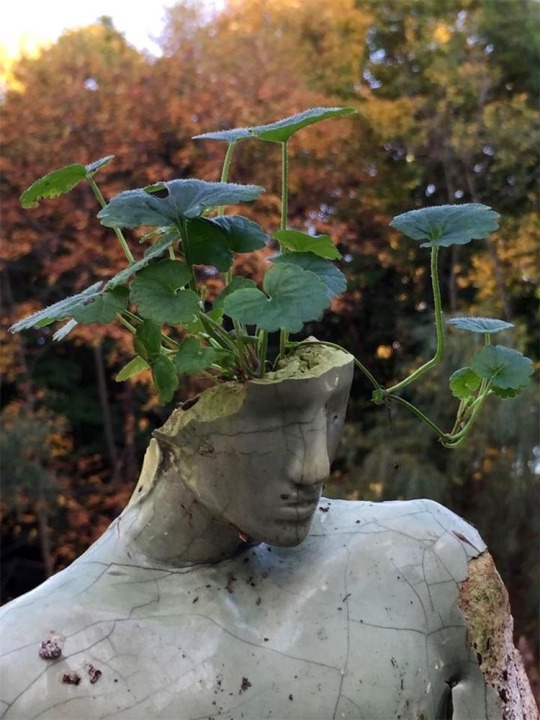
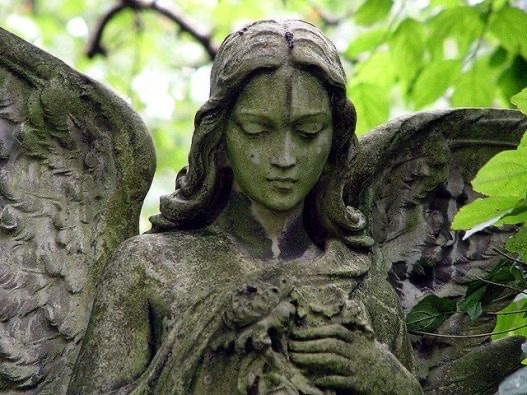
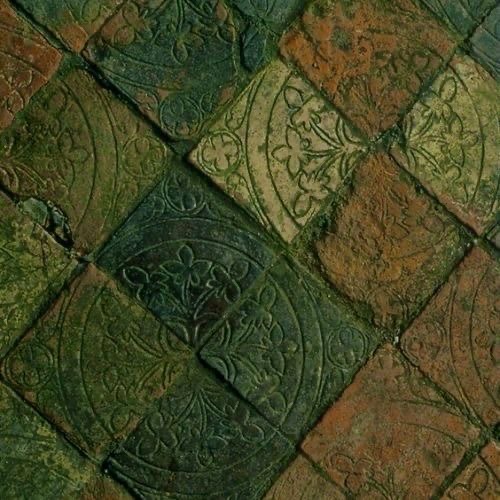

#mosscore#statue#plants#ecology#greenhouse#flowers#fairycore#goblincore#woods#forest#gothic#green#vines#angel#appalachian gothic#literature#classic literature#cozycore#warm and cozy#nature#greenery#nature vibes
6K notes
·
View notes
Text
“Talking nonsense is the sole privilege mankind possesses over the other organisms. It's by talking nonsense that one gets to the truth! I talk nonsense, therefore I'm human” -Fyodor Dostoevsky
#russian literature#literature#fyodor dostoevsky#appalachian gothic#quotations#white nights#sorry for being depressing#words#lit#beautiful quote
48 notes
·
View notes
Text
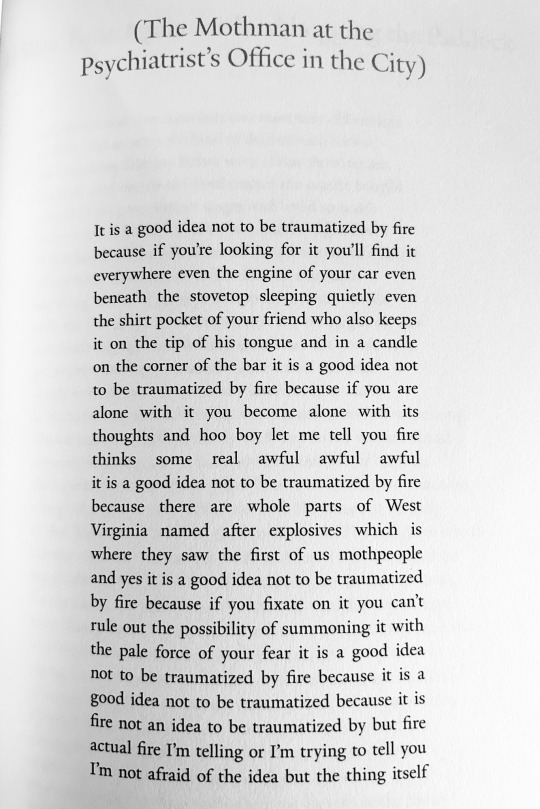
Robert Lynn Wood (Mothman Apologia, 2022)
#op#poem#poetry#literature#Mothman#appalachian gothic#cryptid#trauma#west virginia#southern gothic#Robert Lynn Wood
46 notes
·
View notes
Text
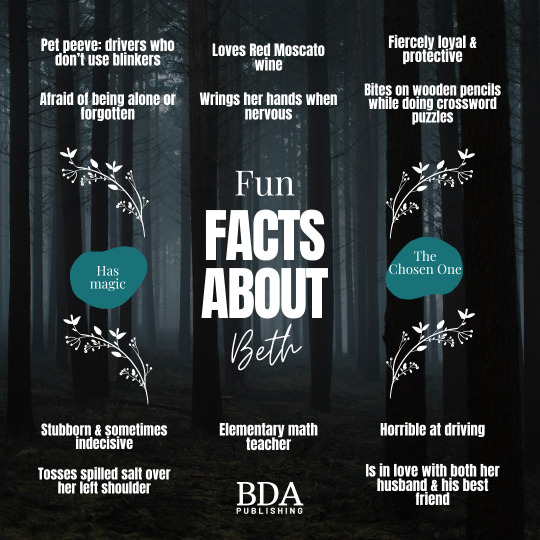

Meet Beth, a love-struck wine lover with a pet peeve for bad drivers 🍷
Welcome to a world where magic is real, monsters exist, and nightmares come true. KP Roberson’s folk horror novel Between the Birches: Awakening invites you into the complex life of Beth. Imagine celebrating your 25th birthday caught in a terrifying love triangle and battling an ancient evil... that’s Beth’s life.
Coming this March 19th!
#bookblr#book blog#books and literature#indie publishing#booklover#indie author#books#books and reading#bookworm#reading#folk horror#appalachian horror#horror#fantasyrecs#fantasy#romantasy#love triangle
2 notes
·
View notes
Text
I just said "there been birds flitting about" and that is the most hilarious smash up of various English linguistics I have heard
2 notes
·
View notes
Text
There are some pretty good pieces of tailypo art out there now, but this is still my favorite for its vague menace, the bear-like claws and the sheer nostalgia factor. A gallery of other tailypos for your perusal...

Image © DeviantArt user Kravuus, accessed at his gallery here. Probably my favorite overall, although I wish the paws were more clearly prehensile.

A tailypo combining features of foxes and opossums, © @a-book-of-creatures, accessed at their site here

A stylishly vague tailypo with striking eyes, © @dailycryptodrawings, accessed here

A very American McGee's Alice in Wonderland tailypo, which makes me think tailypos are sort of an evil equivalent of Cheshire Cats. © deviantArt user streetartist123, accessed at her gallery here

This tailypo plays up the primate aspects; it looks a lot like a murderous bushbaby to me. © deviantArt user eadiletsum, accessed at their gallery here

Traci Shepard's tailypo is the most raccoonish of the lot, although there's definitely some bobcat in the face and ears. © Traci Shepard, accessed at Arcane Beasts and Critters here

And lastly, the cutest goddamn tailypo you ever did see, © deviantArt user draemora, accessed at her gallery here.
Tailypo

Image from The Tailypo: A Ghost Story © Joanna Galdone and Paul Galdone. Accessed here
[You want to know what scares the monster maker? Here you go. My mom read this book to my sister and I as a bedtime story when we were around 5 and 6. And we couldn’t get to sleep all night. No version I could find online was nearly as creepy as the original picture book, so with the picture book I went.]
Tailypo CR 3 NE Magical Beast Stalking forth from the darkness is a beast that combines the features of a wolf, an ape and a big cat. Its paws bear some resemblance to human hands and its face is dominated by staring, owlish eyes and tall ears with tufts like a bobcat’s. A long and furry tail waves in the air behind it.
Bestial backwoods predators, the hybrid creatures known as tailypos are far more cunning than their appearance would indicate. Their hunting strategy is unusual in that it involves a sacrifice of their own body parts, like a lizard shedding its tail. Any creature that takes the bait is stalked unceasingly by the tailypo, who strikes when its target is most vulnerable. They prefer to hunt sentient prey for the challenge, and their nimble paws allow them to open doors and use tools in order to terrorize and kill a victim.
Tailypos are territorial and drive away or kill other predators in their ranges, such as big cats, wolves and bears. Tailypos spend most of their lives in solitude, only meeting with others of their own kind in order to mate and raise offspring. A female tailypo will give birth to a litter of two to six cubs, which grow to maturity over the course of a year. Tailypo cubs are prized for their tracking abilities and can fetch up to 2,000 gp on the open market, but such purchases are highly risky due to the tailypo’s cunning and evil disposition. A tailypo grows to eight feet long, with about half of that length being tail.
Keep reading
#tailypo#nostalgia#nightmare fuel#bogey#american folklore#appalachia#appalachian folklore#appalachain gothic#gore tw#sort of#magical beast#children's literature
125 notes
·
View notes
Note
Announcing new damage types!
Conceptual (specific brand of Psychic damage for otherworldly art, literature, perusing eldritch archives)
Automotive (caused by motor vehicles)
Appalachian (dealt by the Appalachians and any beings originating therefrom)
Political (easier than tracking Reputation between factions, just take Political damage directly to your HP if you screw up)
Mozzarella (exactly what it sounds like)
Digestive (splitting up from Poison; ingested Poisons now deal Digestive, while poisoned weaponry and beasts do Venom
Ragtime
598 notes
·
View notes
Text
Self-Indigenisation is something that I brought up on an earlier post and I think it’s something more people should be aware of. It describes the way that Settler populations will claim Indigenous identities for themselves in order to justify their presence on the land and mistreatment of actually Indigenous populations. This can include using tenuous or even outright fabricated Lineal connections to indigenous peoples in order to claim membership to a group they have no social or cultural ties to. The most well-known example in North America are USAmericans who claim that their grandmother was a “Cherokee Princess” or something of the like in an attempt to buttress their identity as being in some way more impressive or “authentic”. Another example I’ve read about is White Quebecois (who at most might have a very distant indigenous ancestor, and sometimes not even then) with no connection to Indigenous communities claiming indigenous identity in order to launch lawsuits over land rights, sometimes even to the direct detriment of actually indigenous communities. Self-Indigenisation can also include claims that a particular settler population itself has some deep enough connection to the land that it can be considered indigenous. In South East Australia in the 1930s you had locally born Settlers explicitly assert themselves as the original inhabitants of the land and the actual indigenous peoples as nothing more than peripheral transients. The idea of US Appalachian settler populations being some sort of indigenous people has become a recurring one in scholarship and activism in the region and serves as way to assert the rightfulness of their ownership of the land even in a progressive and supposedly anti-colonial context. I haven’t personally read it myself but apparently the book Distorted Descent by Darryl Leroux does a pretty good job of exploring Self-Indigenisation in contemporary Canada.
While most of the literature on the subject I could find focused on North America*, this process if far from unique to that region. Indeed, Self-Indigenisation is one of the major rhetorical strategies used to justify the continued existence of Israel especially in more “progressive” spaces. Like hell even just being active on tumblr recently is going to expose you to numerous Zionist claiming that the Israelis are the true natives of Palestine and that the Palestinian Arabs are merely “squatters”. “Zionism means Landback” and other such nonsense. To be clear there is very much an indigenous Jewish population in Palestine, the “Old Yishuv” Shepardim, but the Settlers who established the state of Israel are very not much it not it no matter how much they try and construct such an identity (such as by suppressing traditionally spoken Jewish languages like Yiddish and replacing them with a reconstructed for of Hebrew) or repute the identity of indigenous Arabs. Essentially self-indigenisation is an especially heinous tool that Settler populations use to evict indigenous peoples on a spiritual level in order to maintain their physical displacement. Such rhetoric must be resisted and discredited as much as possible lest it’s able to have its intended effect
*I suppose it makes sense given that I was only looking at English-language literature and that region is home to the most populous of Anglo settler states
566 notes
·
View notes
Note
Hi Berk! I'm Sam - I've been really inspired by your content and have actually started an MA with the intention of doing my thesis on the devaluation of fanfiction as a (mostly)misogynistic exclusion from adapted, self-insert, and folk literature. If you're open to it, I would love to pick your brain on the culture around fic, especially as it relates to casual and/or Appalachian storytelling. Let me know what you think! I hope you're well and having a fun Halloween season in the meantime :)
i can’t think of a single thing i hat j would like more, actually. :’)
send me an email and we’ll get everything sorted out!!
61 notes
·
View notes
Text
So tiktok is dying by a thousand papercuts and I'm going to miss those communities. If you are part of the following communities please sound off so I can find you:
Gramdmacore
Thrifting
Gardening and homesteading
Cottagecore
Sewing
Vintage fashion
Fuck the government. Seriously. Fuck them.
Anticapitalist
Appalachian history and culture
Cooking on a budget
Canning and food preservation
Semicrunchy but still believes in vaccines
Gentleparenting
All things nerdy and dorky. Comics, dnd, video games, literature, history, you name it i probably enjoy some extent of it.
#grandmacore#dnd#dnd 5e#doctor who#embroidery#sewing#fashion history#anti capitalism#homesteading#gardening#canning and food preservation#appalachian history#cottagecore#vontage#vintage#thrifting
25 notes
·
View notes
Text
Advice for the day: don't ever let anybody make you feel bad for being an academic and an academic nerd (especially as most of us academic nerds were once neurvous overachievers who also later turned out to be neurodivergent autistics later in life!).
But anyways, I love you, academics. The dark academics. The light academics. The punk academics. The goth academics. The emo academics. The hillbilly academics. The Appalachian academics. The leftist academics. The anarchist academics. The socialist academics. The forest academics. The ocean academics. The academics who collect tons and tons of books that they don't read. The academics who collect tons and tons of books and DO read all of them. The academics who stay up late studying for exams the next day and listen to whatever music (i.e. classical, orchestral, lo-fi, pop, metal, R&B, punk, folk, etc.) helps them concentrate. The academics who frequently spend time in solitude reading books in between hallways in their local library or bookstore. The academics who study, read books, write poetry and listen to music while taking a ride on the train. The academics who daydream and overthink. The academics who have passionate yet lively and animated debates and discussions about politics, movies, music, TV shows, books, literature, pop culture, social justice and real world issues with their friends. The academics that watch old black and white movies while drinking a cup of tea or coffee on a rainy day. The academics who spend time in botanical studies and grow their own gardens. The academics that take calm serene walks in the park and spend their time people watching or drawing art sketches. The academics that wildly run through the forests and have outdoor picnics with their friends, without a worry in the world. The academics who are theater nerds or musical nerds. Academics that live in the city. Academics that live in the country. Academics that attend community colleges. Academics that attend pretigious universities. Black academics. White academics. Asian academics. Latino academics. Jewish academics. Arab academics. Desi academics. Middle Eastern academics. Palestinian academics. Iranian academics. Native/Indigenous and Aboriginal academics. Southeast Asian academics. Romani academics. Māori academics. Poor academics. Rich academics. Working academics. Homeless academics. Academics that live in the inner city. Academics that live in the suburbs. Queer academics. Intersex academics. Autistic academics. Disabled academics. Academics who are Christian. Academics who are Hindu. Academics who are Muslim. Academics who are Catholic. Academics who are Buddhist. Academics here in the United States of America. Academics across the pond in England, Scotland, Ireland, Wales, etc. Academics in South America. Academics in Spain. Academics in Africa. Academics in other parts of Europe. Academics in the Middle East. Academics that were the only folks out from among their household to attend school and graduate. Academics that were bullied, disrespected, abused and picked on for being different and looked at as freaks, losers, oddballs and outcasts. Academics that fight tooth and nail to have an education in the midst of war, poverty and humanitarian crises. Academics that literally have to fight for an education while having to deal with various stumbling blocks such as financial difficulties, gender discrimination, racial discrimination, class discrimination, religious discrimination or unsupportive people. Elderly academics who went to school, got an education and graduated later in life.
To academics everywhere, whatever your race, gender, religion, socio-economic status or situation is, I love you all. From an academic nerd to other academic nerds everywhere.
31 notes
·
View notes
Text


About Me:
🐈⬛ My name is G Freyasdottir. I’m 25, I’m an Appalachian American.
🕷️ I am a radical feminist SWERF and misandrist. If you are a male, do not interact. No minors or Christians either.
🌍 I am a climate activist and have sworn to devote my life to protecting and preserving Mother Jord.
🍯 I’m Northern Traditional Pagan and Hedge Witch. Always looking for more friends in the community. ♥️
⚔️ I work with the Norse deities in the most. Freya is my matron goddess.
🌿 I study naturopathic medicine, psychology, and anthropology. Medicine is the way of the woman. I specialize in women’s health.
🍄 My interests are baking, cooking, embroidery, vintage fashion, beauty, fragrance, herbal medicine, music, witchcraft, reading, outdoor activities like camping and backpacking, foraging, wildlife observing, history, art, literature, and more.
#ancient norse#celtic pagan#climate activism#radfemblr#feminism#radical feminist#pagan#norse pagan#norse pagan witch#norse paganism#pagan witch#hedge witch#witchcraft#witchblr#witches#witchcore#radical feminist safe#radical feminist do interact#pagan community#norse heathen
34 notes
·
View notes
Text
My Favorite Podcasts
I wanted to share my favorite pagan/witchy/occult/paranormal podcasts. Some of these I've listened to for years and others I've only just started listening to more recently. Here's the list (and in no certain order): --Circle Talk (geared toward those seeking to understand British Traditional Wicca - the podcast is hosted by Alexandrian Wiccans; I'm Gardnerian, so they're basically Craft siblings.) --Glitch Bottle Podcast (explores deep topics in occultism) --Magic in the United States --New World Witchery (explores United States-based Craft practices - these hosts also run another podcast called Myth-taken, which does a deep-dive of every Buffy the Vampire Slayer episode -- another person favorite!) --Styx and Bones (great for learning about Hellenism and Greek mythology) --What Magic Is This? (explores various occult and new age practices) --WitchLit Podcast (explores various books and literature related to witchcraft and paganism, and also does author interviews) Miscellaneous Old Gods of Appalachia - this is a horror anthology podcast based on Appalachian lore and geography and it is AMAZING.
14 notes
·
View notes